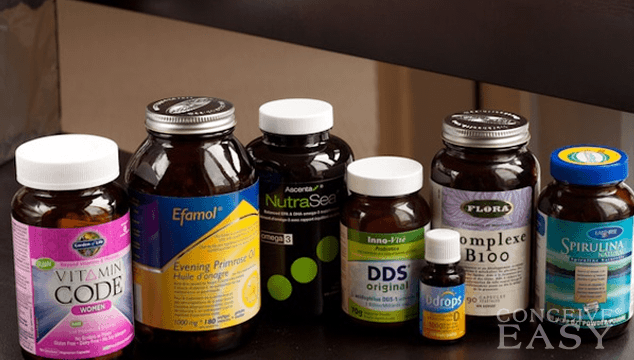Whenever we have a problem, we rush to the pharmacy and buy the drugs we see advertised on TV or those we hear about from our friends and relatives. However, when the problem is infertility, although the general tendency is the same, things are no longer that simple. Claim Your 20 Free Pregnancy Tests – Click Here
In the case of men, infertility is usually the result of a low sperm count or quality, and the treatment is basically the same. But, when you buy fertility drugs for women, there are a lot of things to be taken into account, from the cause of the problem to how the drugs work and their potential side-effects.
Most fertility drugs for women focus on the ovulation process and aim to induce it, regulate it or stimulate it, depending on the case. Their action resembles that of the natural FSH and LH hormones. Here are the 2 types of fertility drugs for women currently available on the market:

Clomiphene citrate is the generic drug name for brand name drugs, Clomid and Serophene. They are taken orally in tablet form, and they aim to stimulate ovulation in women suffering from PCOS and other disorders related to ovulation.
On the market for the last couple decades, Clomid is widely prescribed due to its safety and efficacy and successful reviews. As long as your body is not Clomid-resistant, you will likely get pregnant after beginning this treatment within 6 months. If after 6 months, you are not pregnant then your doctor will move onto the next set of drugs for you.

Unlike clomiphene citrate, these treatments do not stimulate the pituitary gland’s release of hormones, but they stimulate the ovaries directly. They are often combined with intrauterine insemination procedures.
The gonadotropin treatments are usually based on the following 5 drugs:
![]() The Human Menopausal Gonadotropin, available on the market as Repronex or Menopur addresses women suffering from a lack of ovulation as a result of a pituitary gland failure. It is based on both LH and FSH hormones, acting directly on the ovaries and determining them to ovulate. These fertility drugs are injectables, and so will require constant physician supervision throughout your cycle.
The Human Menopausal Gonadotropin, available on the market as Repronex or Menopur addresses women suffering from a lack of ovulation as a result of a pituitary gland failure. It is based on both LH and FSH hormones, acting directly on the ovaries and determining them to ovulate. These fertility drugs are injectables, and so will require constant physician supervision throughout your cycle.
![]() The Follicle-Stimulating Hormone, available on the market as Gonal-F, Bravelle or Follistim, focuses mainly on stimulating the production of mature follicles by the ovaries. These fertility drugs are injectables, and so will require constant physician supervision throughout your cycle.
The Follicle-Stimulating Hormone, available on the market as Gonal-F, Bravelle or Follistim, focuses mainly on stimulating the production of mature follicles by the ovaries. These fertility drugs are injectables, and so will require constant physician supervision throughout your cycle.
![]() The Human Chorionic Gonadotropin, available on the market as Ovidrel and Pregnyl, is generally combined with HMG, clomiphene and FSH treatments, stimulating the release of the eggs. These fertility drugs are injectables, and so will require constant physician supervision throughout your cycle.
The Human Chorionic Gonadotropin, available on the market as Ovidrel and Pregnyl, is generally combined with HMG, clomiphene and FSH treatments, stimulating the release of the eggs. These fertility drugs are injectables, and so will require constant physician supervision throughout your cycle.
![]() Metformin, available on the market as Glucophage, is available for oral administration (tablet form) and indicated for cases when infertility is the result of an insulin resistance, mostly for women diagnosed with PCOS. Its action involves improving insulin resistance, balancing the insulin level and improving the chances for ovulation to occur.
Metformin, available on the market as Glucophage, is available for oral administration (tablet form) and indicated for cases when infertility is the result of an insulin resistance, mostly for women diagnosed with PCOS. Its action involves improving insulin resistance, balancing the insulin level and improving the chances for ovulation to occur.
![]() Letrozole, available on the market as Femara, is the most popular aromatase inhibitor, successfully used in treating certain types of breast cancers, but also able to induce ovulation. An oral tablet like Clomid, it is often the second most prescribed treatment for those that are Clomid-resistant.
Letrozole, available on the market as Femara, is the most popular aromatase inhibitor, successfully used in treating certain types of breast cancers, but also able to induce ovulation. An oral tablet like Clomid, it is often the second most prescribed treatment for those that are Clomid-resistant.
No matter how popular or successful they are, it is never a good idea to buy fertility drugs without consulting a fertility specialist, as the side effects can be quite serious.










Comments